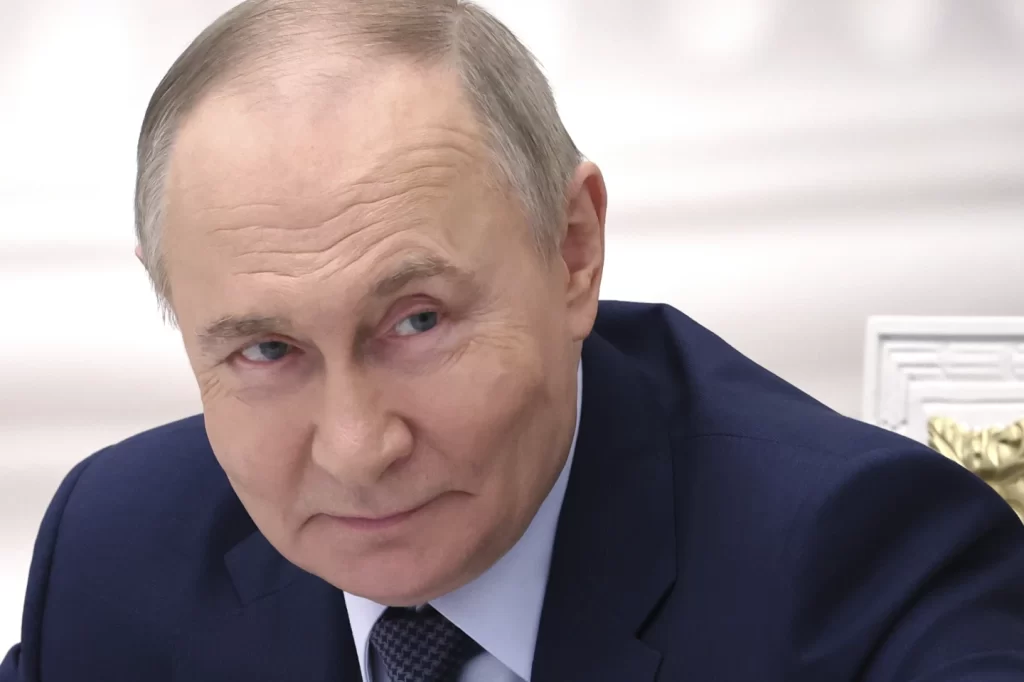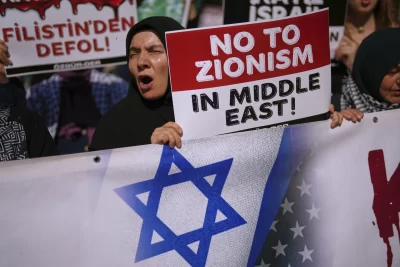
By making harsh, uncompromising demands in peace talks with Ukraine while continuing to pummel it with waves of missiles and drones, Russian President Vladimir Putin is sending a clear message: He will only accept a settlement on his terms and will keep fighting until they’re met.
At the same time, he has sought to avoid angering U.S. President Donald Trump by praising his diplomacy and declaring Moscow’s openness to peace talks — even as he set maximalist conditions that are rejected by Kyiv and the West.
Trump, who once promised to end the 3-year-old war in 24 hours, has upended the U.S. policy of isolating Russia by holding calls with Putin and denigrating Ukrainian President Volodymyr Zelenskyy. At the same time, however, Trump warned Putin against “tapping me along” and threatened Moscow with sanctions if it fails to back his peace proposals.
Trump says Putin is ‘playing with fire’
In recent days, Trump signaled he was losing patience with Putin, declaring the Russian leader had gone “crazy” by stepping up aerial attacks on Ukraine. He also said: “What Vladimir Putin doesn’t realize is that if it weren’t for me, lots of really bad things would have already happened to Russia, and I mean REALLY BAD. He’s playing with fire!”
Dmitry Medvedev, a former Russian president who serves as deputy head of Putin’s Security Council, fired back: “I only know of one REALLY BAD thing — WWIII. I hope Trump understands this!”
Fyodor Lukyanov, a Moscow-based analyst familiar with Kremlin thinking, said Putin is engaged in a “psychological game” with Trump, with both men thinking they understand each other well.
“Putin’s tactics is apparently based on an assumption that the issue has a lesser priority for his interlocutor, who wants to get rid of it one way or another, while for the Russian side, nothing compares to it in importance,” Lukyanov wrote a commentary. “In this logic, the one who sees it as something of lesser importance will eventually make concessions.”
While Ukraine’s European allies urge Trump to ramp up sanctions against Moscow to force it to accept a ceasefire, some fear that Trump may end up distancing the U.S. from the conflict. If the U.S. halts or reduces military aid to Kyiv, it would badly erode Ukraine’s fighting capability.
Growing Russian pressure
Kyiv already is experiencing a weapons shortage, particularly air defense systems, leaving it increasingly vulnerable to Russian missile and drone attacks.
Across the over 1,000-kilometer (over 600-mile) front line, the exhausted and outgunned Ukrainian troops are facing increasing Russian pressure. This month, Russian forces accelerated their slow push across the Donetsk region, the focus of Moscow’s offensive, grinding through Ukrainian defenses at the quickest pace since last fall. Russia also expanded its attacks in the northeastern Sumy and Kharkiv regions following Putin’s promise to create a buffer zone along the border.
Many observers expect Russia to expand its offensive over the summer to try to capture more land and set even tougher conditions for peace.
“Moscow thinks its leverage over Ukraine will build over time, and since Trump has strongly implied that he will withdraw from negotiations the Russian military is set to intensify its operations,” said Jack Watling of the Royal United Services Institute in London. He predicted Russia would intensify efforts to take all of the Donetsk region while also pressing a bombing campaign.



